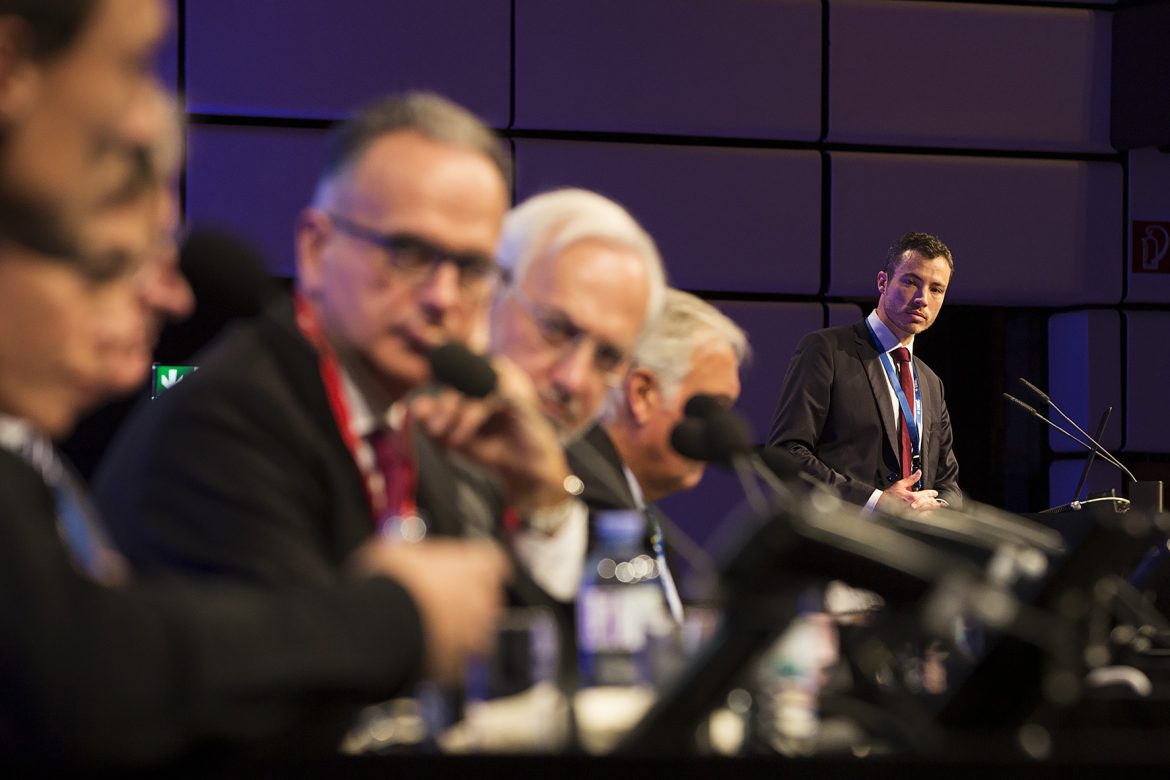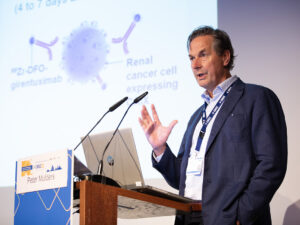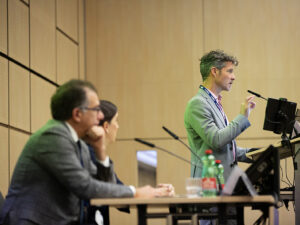The EAU, the European Society for Medical Oncology (ESMO) and the European SocieTy for Radiotherapy & Oncology (ESTRO) are making plans for EMUC20, the 12th European Multidisciplinary Congress on Urological Cancers. The congress is set to take place in Athens, Greece on 12-15 November and is one of the biggest events in the urological calendar.
We spoke to Prof. Arnulf Stenzl (Tübingen, DE) who sits on the EMUC Organising Steering Committee on behalf of the EAU, about hot topics in onco-urology that delegates can expect to learn about, about how EMUC is innovating its scientific programme, and how the current COVID-19 pandemic is affecting onco- urological care.
The Scientific Programme
The four-day EMUC20 Scientific Programme is comprehensive in its field. The first day features optional and supplemental programmes (including the EAU Section of Urological Imaging’s annual section meeting) that require additional registration or fees. The regular EMUC scientific programme starts on 13 November.
Major topics include presentations and case discussions on prostate cancer, bladder cancer, new trials and all other GU cancer, all featuring speakers with perspectives and expertise from their own disciplines.
Prof. Stenzl points out some highlights for 2020: “we are covering new approaches in the comprehensive treatment of non-muscle invasive bladder cancer, the treatment of urothelial and prostate cancer, particularly checkpoint inhibitors in various combinations”.
In order to better highlight the multidisciplinary character of the congress, when it comes to certain case discussions the scientific committee has decided to include more discussants. Each discussant will address the case at hand from a different treatment perspective. This way, each approach to the treatment can be compared and weighed appropriately.
Special attention for the pandemic
The COVID-19 pandemic that has so drastically impacted life for everyone also affects the management of patients of urological cancers. Prof. Stenzl points to an entire session that has been added to the programme in the wake of the pandemic:
“There will be a new session in the EMUC20 scientific programme that addresses the pandemic’s influence on treatment of onco-urological patients. We will be covering new guidelines that were set up by, among others, the EAU’s Guidelines Office Rapid Reaction Group (GORRG).”
The GORRG is one of several guidelines initiatives to offer additional recommendations on safety for patients and medical professionals. It is one of several of the EAU’s initiatives to inform its members on the impact of the pandemic.
ESMO has taken similar measures. Since the early days of the pandemic, it has activated a dedicated portal as a point of access to useful materials and resources to support medical oncologists delivering optimal cancer care to patients. They include the ESMO-adapted recommendations for clinical practice across various tumour types aiming to provide guidance to prioritise cancer care during the Covid-19 pandemic and a patient guide targeting patients, families and caregivers which is available in multiple languages.
Recently, ESMO has also launched an international collaborative project, the ESMO-CoCARE Registry, to quickly gather data and information from healthcare professionals about treatment approaches specifically focusing on the impact of SARS-CoV-2 on cancer patients.
ESTRO for its part has compiled a set of useful links for its members. In order to take up the challenges faced by the radiation oncology community, it launched a dedicated page gathering useful COVID-19 resources. The section includes various recommendations and revised guidelines related to the adaptation of the management and delivery of care, the change in practices as well as testimonies from its members.
At the time of writing EMUC20 is still set to be held, although the organisers are closely monitoring the situation.
A longstanding cooperation
The first EMUC was held in 2007, initially as a biannual meeting. In its first four iterations it was held in Barcelona. From 2011, the congress was held on an annual basis, and it soon started being held beyond Barcelona. In 2019, EMUC was held in Vienna.
The congress has expanded over the years to include more oncology-related fields, such as the EAU Section of Urological Imaging and satellite sessions that cover pathology, as well as countless (hands-on training) courses by the European School of Urology. But at the core of EMUC was always the cooperation between the EAU, ESMO and ESTRO, a multidisciplinary organisation for a multidisciplinary approach to urological cancers.
Prof. Stenzl characterises the cooperation with fellow Steering Committee members Profs. Aristoteles Bamias (Athens, GR) and Peter Hoskin (Northwood, GB) as “very pleasant and on a basis of collegiality, with understanding and fruitful discussions. Our combined projects, like guidelines, go beyond the scope of the congress and benefit all disciplines.”
- Abstract Submission is open until 1 July 2020
- Discounted early registration is available until 12 August 2020



